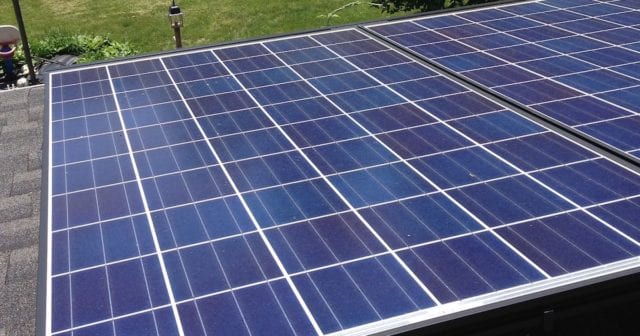There are a lot of details to consider when you want to go solar. Since most solar panel installations are designed for the roof of a home, your roof becomes a central factor in whether now is the time to go solar or not. The technical details aren’t the only consideration. It’s important to know what going solar will do for your Charlotte home insurance coverage as well.
Your Roof Matters Most
If your solar panel system is going to be installed on your roof — and most are — the details matter. The size, slant, and other factors determine how effective solar will be for your energy needs.
- South-facing roofs are best for capturing sunlight. The worst are north-facing roofs, and a qualified solar panel installation company may advise against solar panels on your roof if it faces north.
- The sun needs to beam down on the solar panels for at least five hours a day in order to produce the most energy. If your roof is shaded most of the day, this could prevent you from getting adequate power.
- Solar panel systems need 100 square feet per kilowatt of power. The average home needs enough panels to generate 5 kilowatts of power, which amounts to 20 panels for 500 square feet of roof. If you need that amount of power but don’t have the available space, a roof installation won’t be an option.
- Solar panels are most easily installed on asphalt shingles or corrugated metal roofs. You can install them on slate or tile roofs but the cost goes up due to the increased complexity.
- The slant of your roof matters as well. Solar panels can be installed on any roof that’s slanted zero to 45 degrees because it need to be angled at 30 degrees. The racking system can be adjusted to meet the angle requirements for your solar panels. If your roof slants more than 45 degrees, solar panels on your roof may not be an option.
- If you install solar panels on an older roof, you’ll add to the overall cost over time. Because solar panels last 25 to 30 years, when you replace your roof, your solar panels will have to be taken down and re-installed. It’s best to install the panels right after you replace your roof to avoid this extra step and cost.
Solar Panels and Home Insurance
Most home insurance policies will cover your solar panels if they’re installed on the roof of your home because they become a part of the permanent dwelling. Always check with an independent insurance agency like ours before you have them installed to check. Here are a few other ways solar panels can impact your home insurance.
Solar panels not installed on roof: You may need an add-on or rider for a solar panel system not installed on your roof. In some cases, you may need a separate policy. Talk to your insurance agent to confirm before the installation takes place.
May need to increase home insurance coverage: Solar panels that you own (not leased) can potentially add thousands of dollars to the value of your home. The system also has a high value, especially if it needs to be replaced after a covered peril. As a result, you may need to increase your policy limits in case you ever need to file a claim.
No home insurance changes if you lease: For some homeowners, leasing solar panels is the best option. While it doesn’t increase your home’s value, it also doesn’t require you to update your insurance policy. Make sure you read the agreement carefully to make sure the leasing company will cover the equipment and any problems after an accident, storm, or other problem that leads to damage.
If you’re looking into solar panels to reduce your energy costs and to help the environment, talk to us before you sign any agreements. Here at Charlotte Insurance, we can let you know what your current policy covers and what, if any, changes you’ll need to make once the solar panels are installed. Contact us today!

